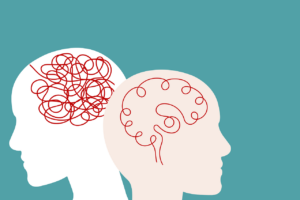
Aging around the world
Did you know that nearly 47 million adults over the age of 65 live in the United States? Or that 80 percent of adults over the age of 50 have experienced age-based discrimination during their day-to-day?
With nearly 8 billion people living on the planet, there is plenty of room for interpretation regarding how people think about aging. Western cultures have traditionally been labeled as ageist societies that undervalue their older adult populations. Eastern cultures are recognized for their more accepting view of older adults, placing them on a pedestal of wisdom and respect. Where does this difference in views come from?
Western and eastern conceptions of age
The idea that eastern cultures treat older adults with more respect comes from the Confucian values that guide these cultures. Confucian values promote a positive view of aging, which encourages younger generations to treat older adults with respect, obedience, and care.
Western cultures tend to have more youth-centered societies that place value in young adults rather than older adults. This way of thinking stems from Protestant values that tie an individual’s worth to their ability to work and be an active member of society.
These two different ideologies have led to the conclusion that eastern cultures are less ageist than western cultures. But is this true? Is there really that big of a difference in eastern and western conceptions of older adults?
A 2017 study in the International Journal of Psychology reported on the results of a survey that was conducted with over 500 people from the United Kingdom and Taiwan to address this east-west aging debate. The survey’s questions aimed to uncover individuals’ meta-perceptions, or perceptions of their society’s views on aging and their own personal views about age-related changes.
Data showed that members of eastern cultures believed their society had a positive view of older adults’ confidence and ability to handle emotions. Taiwan had an overall more positive view of the older adults in their culture, though not by much.
So, to answer the question, while studies point to eastern cultures as being less ageist, more data is needed to confirm perceptions of older adults in different cultures.
College students’ perception of age
Another study aimed to understand younger people’s views on aging throughout the world. By questioning over 3,000 college students from 26 cultures in six different continents, the study aimed to develop understanding about the world’s perception of aging through a cultural lens.
The participants were asked about their perceptions of aging through a short list of characteristics that are relevant and understood in most cultures. The characteristics included:
- Physical attractiveness
- Ability to do everyday tasks
- Ability to learn new information
- General knowledge
- Wisdom
- Respect received from others
- Authority in the family
- Life satisfaction
Participants were asked to rate their own perception of aging and then rate their society’s views of aging. The general perception of aging on an individual level varied, but most cultures viewed aging with a negative lens, except for Mainland China, India, Malaysia, Russia, and New Zealand, where participants thought society was neutral or minimally positive about aging.
Across all cultures, there was a consensus that aging comes with a decrease in physical attractiveness, everyday tasks, and learning new things. At the same time, cultures agreed that aging comes with an increase in general knowledge, wisdom, and respect.
Most cultures agreed on the different characteristics of aging and whether they are a positive or negative characteristic. Eastern or western culture, it did not matter, but again, eastern cultures showed slightly more compassion for older adults.
What should we make of this?
The world population is slowly aging. Scientific literature suggests that we will see a massive growth in the older adult population. By 2060, demographers project that there will be 94.7 million older adults in the United States alone — almost three times the number of older adults in the year 2000.
It’s important to understand that age is not an indication of ability. The more the population ages, the more important it is to keep this in mind. Older adults deserve respect, consideration, and understanding, just like any other member of society. As the population ages and grows, so should we. We should embrace an older generation, build on their strengths, and continue to develop our world to be more understanding and inclusive.
ABOUT THE AUTHORS
Grace Weintrob is a junior majoring in Communication Studies with a minor in Stage, Sports, and Film Production at CSU. She is currently working as the digital media intern for the Columbine Health Systems Center for Healthy Aging.





